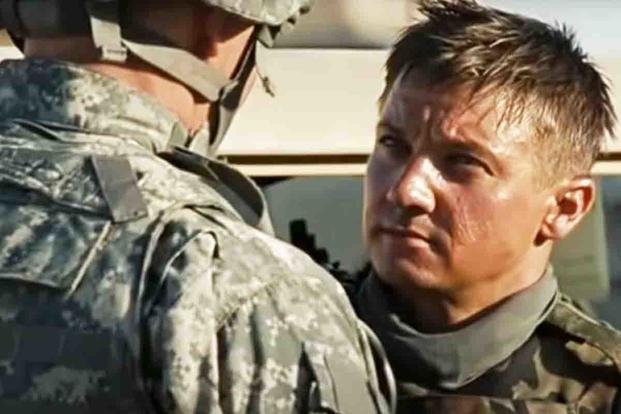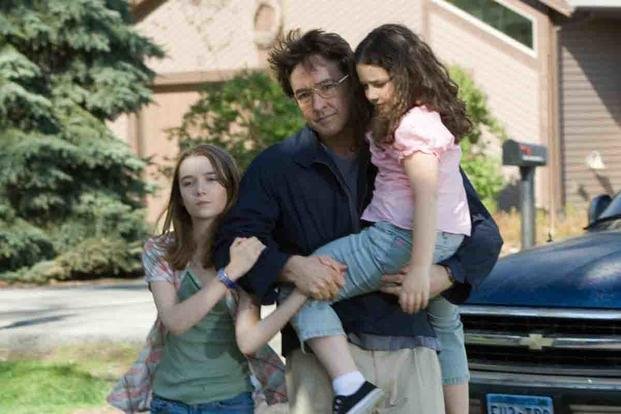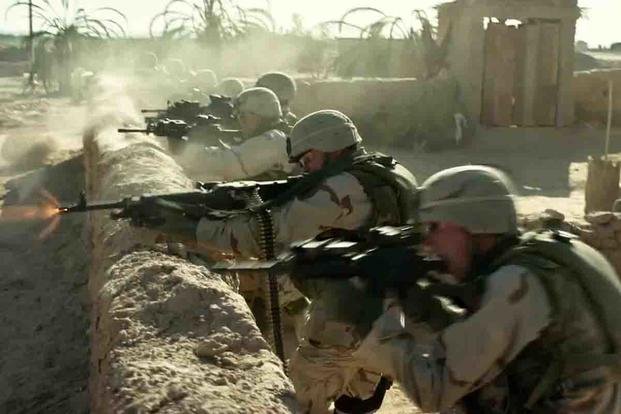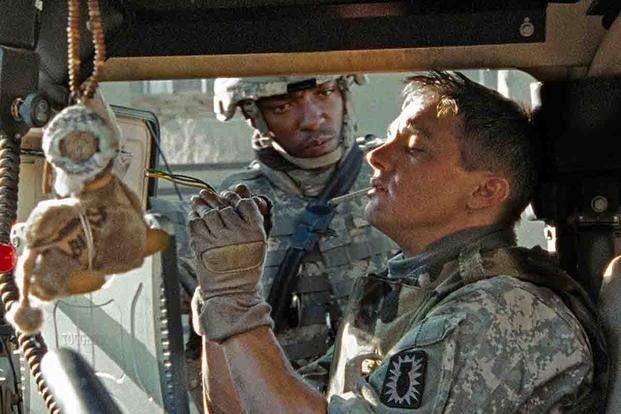In 2009, director Kathryn Bigelow's "The Hurt Locker" -- an Iraq War action thriller following the deployment of a U.S. Army explosive ordnance disposal unit under an increasingly erratic new team leader -- hit theaters to critical fanfare. Legendary film critic Roger Ebert called it "the second-best film of the decade" (behind "Synecdoche, New York"), while New York Times critic A.O. Scott dubbed it "the best non-documentary American feature made yet about the war in Iraq." Academy Awards voters agreed: The film would go on to win Best Picture and Best Original Screenplay, among other awards.
The only problem was that veterans of the Iraq War hated it. Despite the fact that screenwriter Mark Boal had embedded for two weeks with EOD units in Iraq in 2004, the consensus among veterans was that "The Hurt Locker" distorted the war and the stories of U.S. service members who fought it, in favor of making a dramatic action movie. They called the plot "nonsensical" and the way its soldiers operate "absurd." One real-life EOD soldier who deployed to Iraq declared the portrayal of his occupation "grossly exaggerated and not appropriate."
That a film beloved by the broader American culture might feel so removed from the reality of the war it sought to chronicle might feel vexing. But 15 years after "The Hurt Locker's" release, its reception is very much an apt analogy for how Americans remember the Iraq War. Or more to the point: that they don't really remember the war at all.

Part of the disconnect is a matter of demographics: There just aren't that many veterans in relation to the greater population, one largely untouched by America's ongoing conflicts. Less than one-half of 1% of Americans currently serve in the military, a figure that has remained largely unchanged since 2003, when the Iraq War began. Over the course of that war, only 1.5 million would deploy to Iraq.
These numbers highlight the gulf between those who actually experienced the war and those who will only know it from the perception of popular media -- and as time goes on, that gulf only grows. Indeed, a 2023 survey conducted on the 20th anniversary of the start of the Iraq War found that roughly only 21% of Americans feel the war changed their lives, while the vast majority feel the Iraq War is largely invisible and out of mind.
Not all depictions of the Iraq War fall into the same trap as "The Hurt Locker"; in fact, television stayed faithful to the realities of the war from its earliest days. In July 2005, producer Steven Bochco ( "NYPD Blue," "Hill Street Blues") developed "Over There," a series about the U.S. Army's 3rd Infantry Division on its first tour in Iraq. It was the first scripted television series to dramatize a contemporary ongoing conflict that involved U.S. troops. Although critics universally slammed it for being apolitical, the language and violence depicted on screen pulled no punches about the reality of the war. It was not the true-life personal story needed to connect with audiences, but it broke the ground for more.
Three years later, HBO and the minds who brought us "The Wire" released the miniseries "Generation Kill." Based on Rolling Stone writer Evan Wright's book of the same name, it followed Wright's own experience with the U.S. Marine Corps during the Invasion of Iraq in 2003. The highly lauded and often-quoted series was well-received by critics and Marines for its realistic depictions -- not just of the war, but of life as a Marine in wartime.
In 2017, another book by an embedded journalist was turned into a limited series, this time ABC News correspondent Martha Raddatz's 2007 book "The Long Road Home: A Story of War and Family." NatGeo shortened the title to "The Long Road Home," but the story of the 1st Cavalry Division during the April 2004 Siege of Sadr City remained intact. It made compelling television while telling a very real story about real people at war.
In contrast to its small-screen successes, Iraq War movies have proven more plentiful over time, but their faithfulness to source material oscillates widely. Films such as 2009's "Taking Chance" (based on a blog written by Marine Corps officer Michael Strobl) and 2017's "Thank You For Your Service" (based on journalist David Finkel's book of the same name) are good, because their characters are good and the hardships they face are relatable.

There are also, of course, the wild depictions that only exist to sell popcorn. The 2010 film "Green Zone" is based on Rajiv Chandrasekaran's nonfiction book "Imperial Life in the Emerald City," which details life in the Coalition Provisional Authority after the invasion of Iraq. The movie's plot just happened to be entirely fictional, and the war it depicted was unrealistic. By the time "Green Zone" began production, the identity of Curveball, the informant who supplied WMD intelligence to the U.S. and its allies, was already well-known. For a film trying to make a statement about weapons of mass destruction, the lie on which the war was sold, such a heavy lift would have been better served with the real story.
Historical and military accuracy doesn't automatically make a good movie, as critics, audiences and even veterans will admit. The 2017 film "Sand Castle" was written by Iraq veteran Chris Roessner and based on his experiences, but it received mixed reviews at best. That same year, Army veteran Kevin Powers' book "The Yellow Birds" was turned into a film The New York Times described as "humdrum."
For veterans, the effort made in a faithful retelling is an acknowledgment of their service and sacrifices, an effort that goes beyond a verbal "thank you for your service." It's important because movies and TV shows will, eventually, become this country's enduring cultural memory of its most important events.
At the end of the day, people connect with what they know from their own experiences. The most successful and true-to-life stories about the war in Iraq come from personal stories, related by individuals or small units. These kinds of stories either come from veterans themselves, journalists who embedded with troops or from thoughtful producers who carefully adapt those stories for the screen. Audiences may not relate to the life of U.S. troops at war, but they can relate to more universal themes such as friendship, love and family (either at work or at home).

"The Hurt Locker" became (and endures as) a target of veterans' ire, because it's arguably the most popular and memorable movie set in the Iraq War, and it isn't a bad action movie -- so long as the audience doesn't know everything the characters are doing is wrong. There is no "Platoon" for the Iraq War veteran experience, and Quentin Tarantino has yet to write an alt-history of the war where America finds WMDs and successfully installs democracy, but there are stories worthy of a faithful retelling.
Perhaps most importantly, there is no Gettysburg Address to remind American veterans that the world will never forget what they did in Iraq. Instead, they have movies such as "The Hurt Locker," a shiny trophy the world will little note, nor long remember. For veterans of the conflict, the film and its mainstream success is a constant reminder that most Americans didn't fully understand the reality of their war, if they ever knew it at all.
Film and television are art forms that shine a light on our collective memory. Since audiences have no personal connections to Iraq or its veterans, they're left with a hole filled by Hollywood's most popular popcorn movies -- and "The Hurt Locker" leaves only a distorted, exaggerated image of the war and those who fought it.
Keep Up With the Best in Military Entertainment
Whether you're looking for news and entertainment, thinking of joining the military or keeping up with military life and benefits, Military.com has you covered. Subscribe to the Military.com newsletter to have military news, updates and resources delivered straight to your inbox.

















